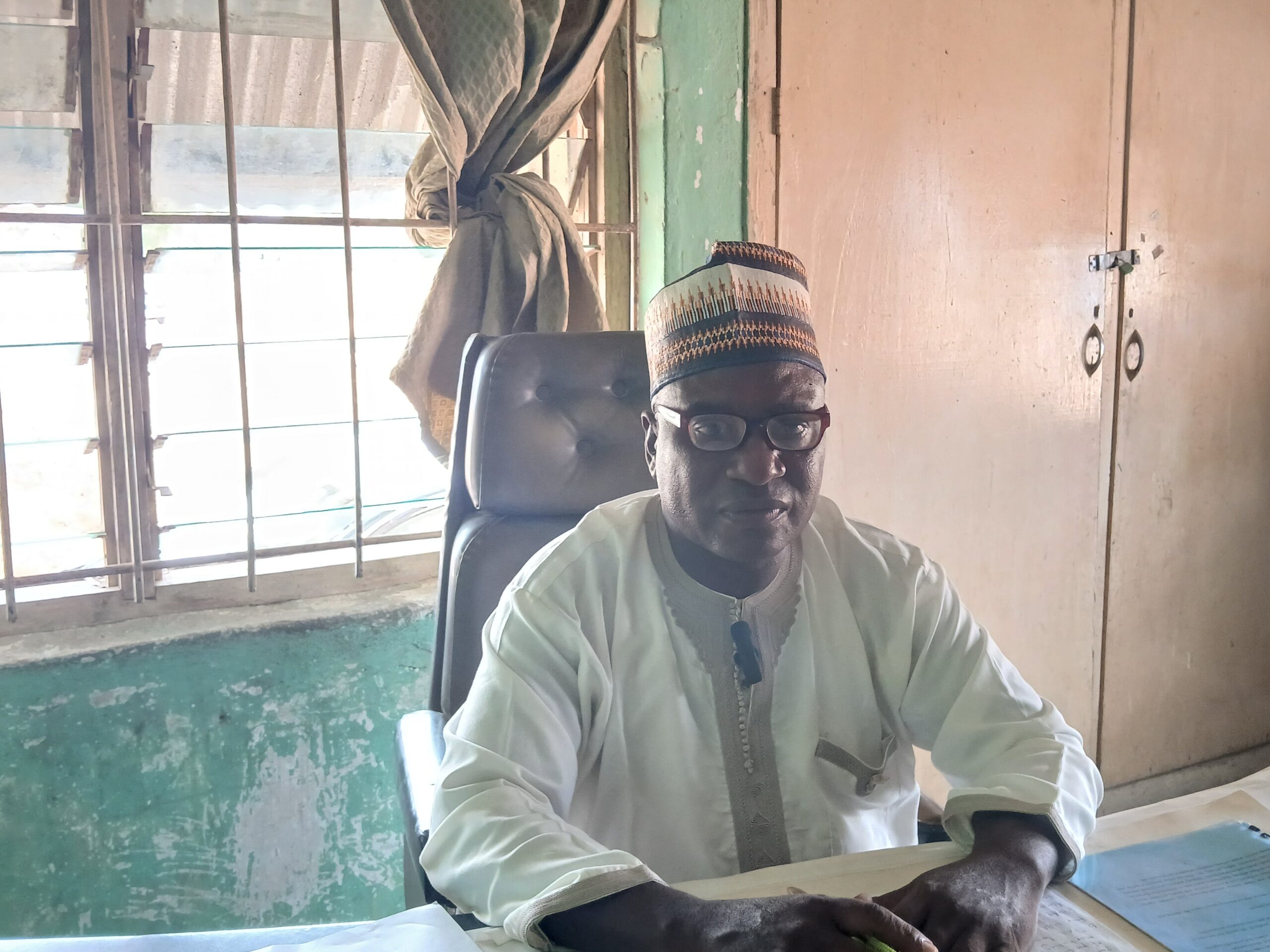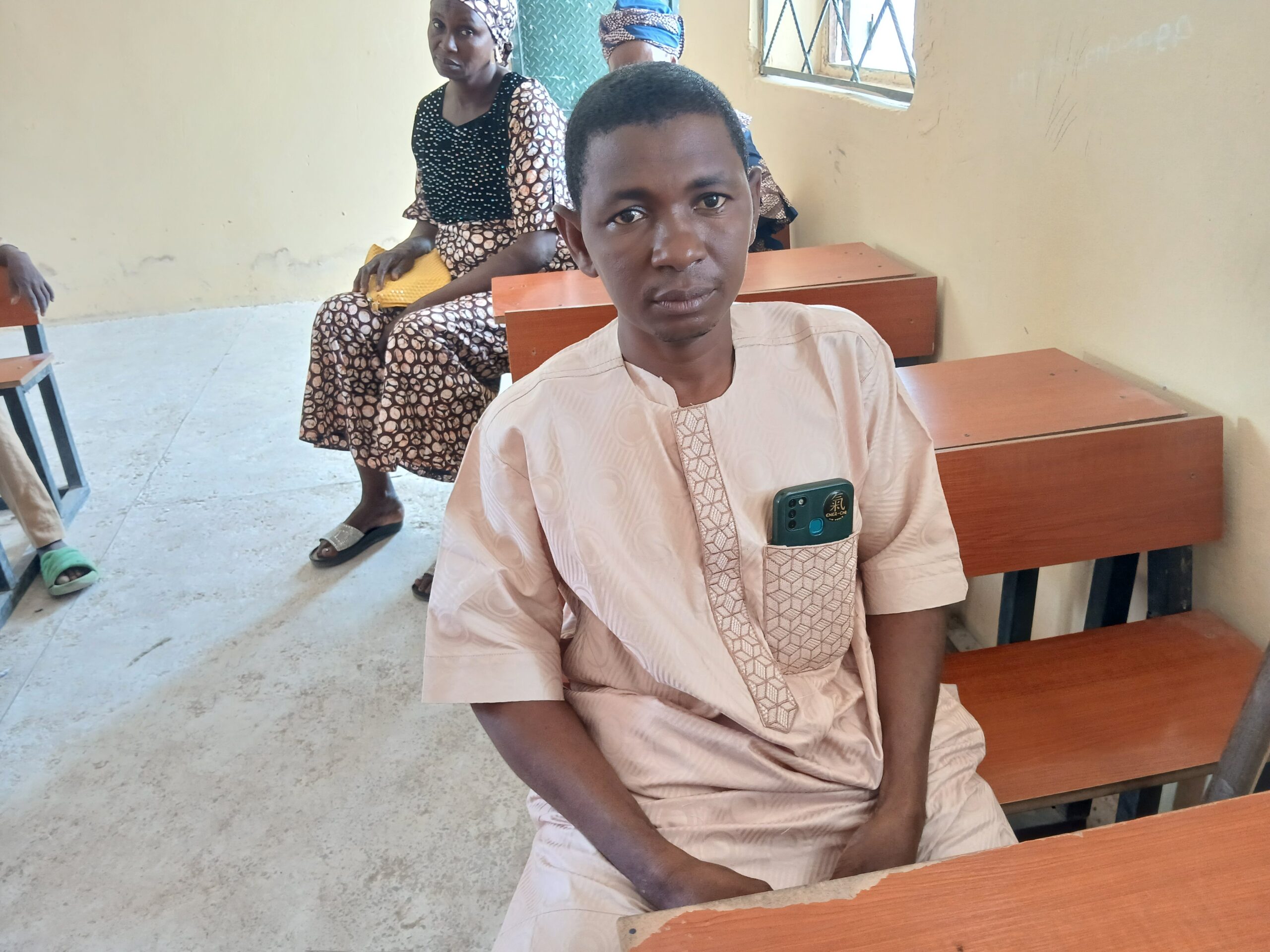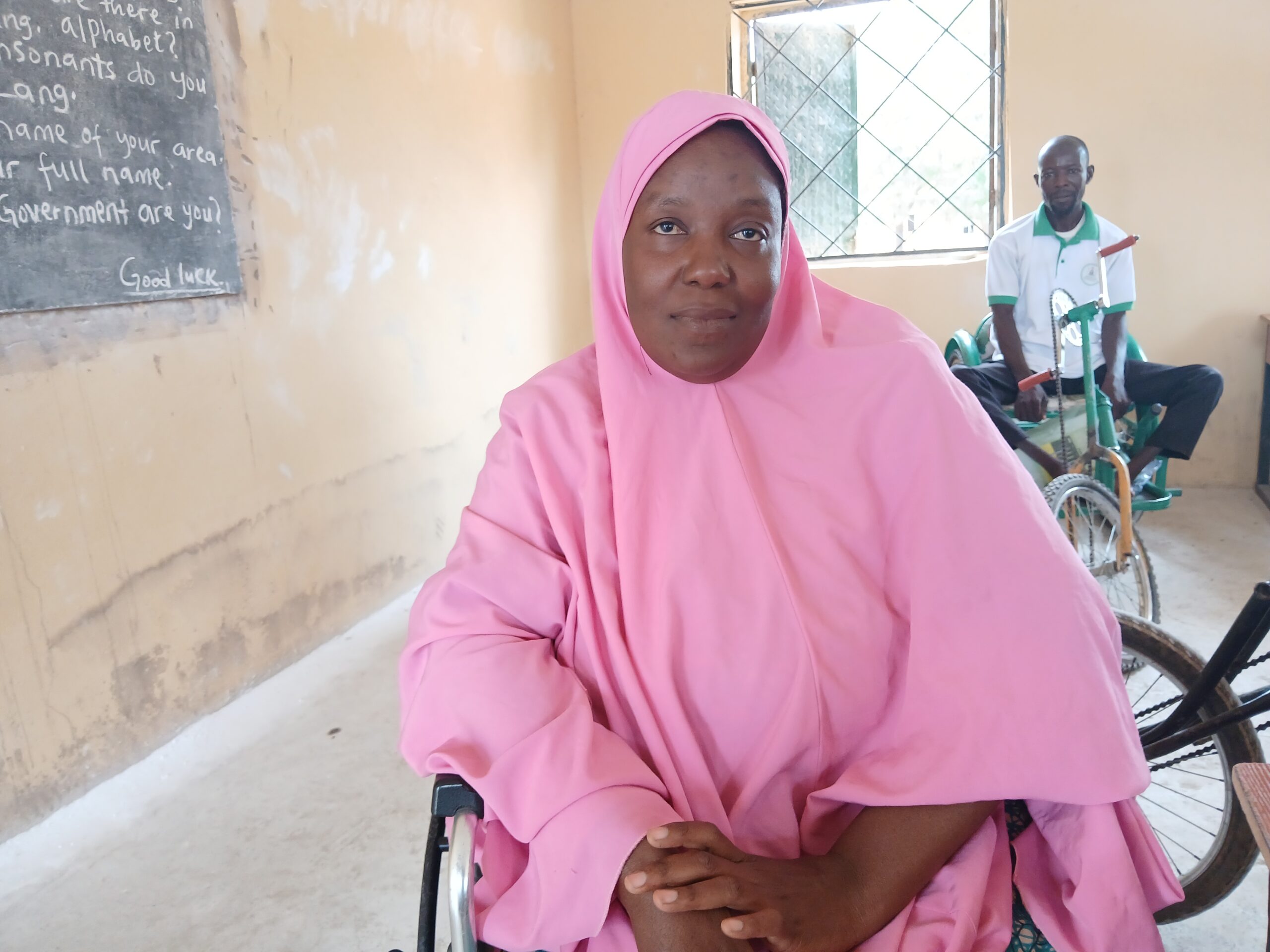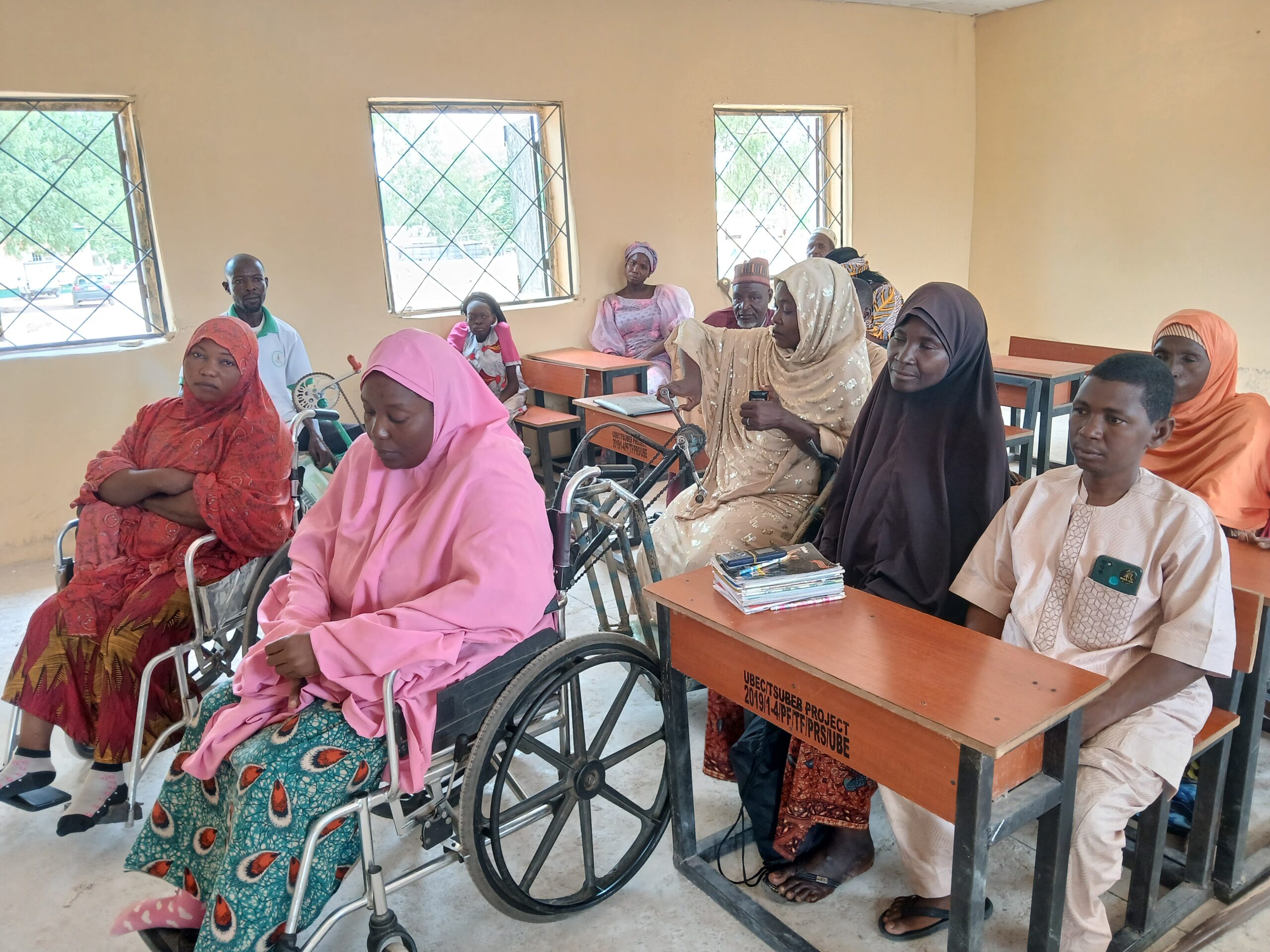Andrew Obadiah leaned back in his plastic chair inside his spacious office, looking back nostalgically at his journey as an adult educator. With a career spanning more than 3 decades, he settled at the Taraba State Mass Education Board, a statewide outreach focused on providing education to adults with no experience of formal schooling, running special programs for people with disabilities, and re-enrolling out-of-school children.
Until 2013, the Taraba State Mass Education Board was known as the Agency for Mass Education, one of many non-formal education schemes enacted by the then military government in 1988 to enhance literacy in the country.
Obadiah, who had been 20 at the time, joined the agency’s branch in the defunct Gongola state (now Adamawa and Taraba states) as an administrative officer. Over the years, he rose through the ranks to become the current executive secretary of the board.

With its schools spread across 16 local government areas in Taraba State, Obadiah explained that the board had become a formidable citadel of learning for the populace, helping to tackle illiteracy in the state’s grassroot communities.
“At mass education, we build a sense of community by bringing people together. We go the extra mile, meeting people at their homes and farms,” Obadiah said. “Our programs target diverse groups of people, including peasant farmers, women in rural areas, market vendors, children who are out of school, the girl child, children living on the streets, almajiri children, roadside traders, and skilled craftspeople.”
In its earlier years, the board adopted public school buildings in the state for its adult classes. Classes were sometimes hosted in unconventional settings, such as busy markets and worship centers or under wide-branching trees.
To attract adult learners, the board often collaborates with traditional rulers and religious figures because of the huge influence they command in their respective circles.
‘A life-changing opportunity’
Nasiru Usman, 30, lost his ability to walk after contracting polio during his childhood. As such, he lost faith in education, partly due to the prevailing belief in his community that condemned people with disabilities to street begging. But Usman’s preconceptions changed in November 2023, after a friend drew his attention to an announcement on TV about a program for people living with disabilities.
After a collaboration between the board and the Taraba State’s union for people with disabilities, he promptly enrolled in a basic literacy course.
“This opportunity has changed my way of thinking and now that I realized how important education is, I’m putting more effort into learning. The good thing here is that everything is free, and sometimes we even receive incentives from the board,” Usman told Prime Progress.
Usman delights not only in his new ability to read and write but also in his potential to share his knowledge with the public. With a knack for numbers, he hopes to enrol in more programs sponsored by the board with a dream of becoming proficient in mathematics.

For Hadiza Idris, a 33-year-old person with disability from Jalingo’s Sintali community, the program is a life-changer. She had never thought of going to school until she attended an orientation organized by the board. “As girls, especially those who have disabilities, we weren’t given the chance to learn,” said the mother of two. “But now that I’m mastering this literacy course, my perspective has shifted. I will do whatever it takes to educate my daughters and many other people with disabilities.”
As Hadiza studied her notes on the chalkboard, her eyes gleamed with enthusiasm for more learning opportunities.

Lessons from the basic literacy program are taught in the native language of the students. The Hausa language is the commonest language in many northern Nigerian states, including Taraba. However, according to Obadiah, the program adopts the most prevalent local language in each local government area of the state. A clear example is Jukun, spoken in southern Taraba communities. At least 38,329 adults in Taraba State have benefited from the basic literacy program
Yet the board offers more than just basic literacy programs. Its curriculum encompasses continuing education and training in skill acquisition, providing learners with solid skills in soap making, cream production, tailoring, and shoemaking.
Depending on the daily learning hours, the duration of study can range from 3 to 9 months. While a 3-month stint offers one-hour sessions daily, six days a week, a 6-month program requires three-hour sessions 3 days a week. Upon completion of the course, the adult learners are presented with certificates with grand graduation ceremonies to celebrate their accomplishments and inspire others.
Nevertheless, the program is tethered to the general curriculum of the National Commission For Mass Literacy, Adult and Non-Formal Education (NMEC), the federal agency which oversees adult-education programs in Nigeria.
‘Unconventional learning’
Jibril Bilyaminu is one of several adult learners awaiting his graduation ceremony. The 25-year-old prioritized Islamic theological grounding over conventional schooling during his boyhood days. While his contemporaries chased after university degrees, he opted for the basic literacy course, learning English constructions while tending to his farm during off-school hours.
“I’m happy to say that I can now pronounce and understand English words,” Bilyaminu said confidently. He further expressed his aspirations of becoming a professor, despite the unconventional starting point in which he had found himself.
Grace Chukwu, another adult learner, spent the past few years selling moi-moi near the board’s learning centers. Seeing the transformation of other adults into literate individuals piqued her interest in the program. Now, at 33, she’s actively working to improve her English communication skills. “As a businesswoman, this literacy program will empower me to better connect with customers who prefer English.”
‘Fruitful collaborations’
In 1994, Geoffrey Ahima joined the board as an adult educator. Today, he’s a principal officer at the Jalingo learning center, where he coordinates all learning. “I find this work deeply rewarding because of its impact on transforming adult lives,” Ahima enthused.
Donald Akpashu, another dedicated adult educator at the Jalingo learning center, shared stories of former students who have gone on to earn O-level, national diploma, and even degree certificates.
The board’s collaborations with the Universal Basic Education Commission (UBEC) and State Universal Basic Education Board (SUBEB) have resulted in the construction of 17 adult education and skill acquisition centers across the state.
These numbers show a significant reduction in the state’s illiteracy rate, considering Nigeria’s national illiteracy rate for 2022, is estimated at 31%.
Obadiah further highlighted their collaboration with the BESDA program (a World Bank project) that led to the provision of educational opportunities for 53,000 out-of-school children in 2021. Additionally, the TY Danjuma Foundation and other non-profit organizations have supported the board’s programs, enabling it to train 12,500 individuals in both literacy and skill acquisition programs.
“We have established strong relationships with tertiary institutions across the state. This allows us to collaborate on our programs and welcome students for valuable industrial attachment or internship opportunities within the board,” Obadiah explained.
‘Not immune to challenges’
The work of the board is still plagued with challenges. Learners’ engagement remains a hurdle due to issues like absenteeism, with some of them abandoning studies halfway through their program.
Also, the literacy programs have come under resistance from some grassroots communities, which feel the program doesn’t address their core needs or isn’t culturally relevant. But the board continues to plow ahead.
In the meantime, while Obadiah mulls over his looming retirement from the board, he is ensuring that qualified instructors are employed, with more adequate learning materials for grassroots communities within the state. “Our plan is to establish learning centers in each ward of the state and empower adults with the knowledge and skills they need to secure jobs,” Obadiah stated.
Andrew Obadiah, with over three decades of experience in adult education, is the executive secretary at Taraba State Mass Education Board, which focuses on educating adults and re-enrolling out-of-school children. Originally called the Agency for Mass Education, established in 1988, the board has become a prominent educational institution in Taraba, employing unconventional methods to reach grassroots communities.
The board partners with traditional and religious leaders to attract learners, and classes are held in varied settings. It also runs specialized programs for people with disabilities. Nasiru Usman and Hadiza Idris are among the many who have benefited from these programs, overcoming societal stigmas and gaining essential literacy skills.
Instructions are provided in the local languages, ensuring effective learning. The board doesn't limit its curriculum to literacy alone but includes skill acquisition such as soap making and tailoring, with courses lasting between 3 to 9 months, culminating in grand graduation ceremonies.
Collaborations with bodies like UBEC and NGOs have expanded educational opportunities, significantly reducing the state's illiteracy rate. However, challenges remain, such as high absenteeism and cultural resistance. Despite these, Obadiah remains committed to expanding learning centers and improving education for Taraba's adults, even as he approaches retirement.






